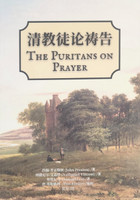
Kistler, Don (Editor)
Description
Do you desire greater fellowship with God? The Puritans did, and this collection of their writings on prayer invites us to join them. They not only call us to prayer, but they also explain its various facets and instruct us on how to thrive in it. Here is encouragement in the duty and privilege of pouring out your soul to the Lord.
Works included in this volume:
One of the marks of a hypocrite, according to Jonathan Edwards, is the absence of prayer, the essential language of a reborn soul. The Puritans exemplified a life of prayer, and this collection of three classic Puritan articles provide their practical advice for us on how to improve the quality and fervency of our own prayers.
John Preston’s The Saint's Daily Exercise is the quintessential Puritan work on prayer.
Nathaniel Vincent’s The Spirit of Prayer is full of practical exhortations for perseverance in prayer.
Samuel Lee’s Secret Prayer Successfully Managed meditates on the quiet joys of spontaneous communion with God.
Contents
Editor’s Note
The Saint’s Daily Exercise, by John Preston
To the Reader
Sermon One: What Prayer Is
Sermon Two: Praying Continually and Impediments
Sermon Three: Cases of Conscience
Sermon Four: What Makes Prayer Acceptable
Sermon Five: Questions and Answers
The Spirit of Prayer by Nathaniel Vincent
Introduction
Doctrine One: Praying Always
Doctrine Two: All Prayer
Doctrine Three: Supplication in the Spirit
Doctrine Four: Watch in Prayer
Doctrine Five: Persevere in Prayer
Doctrine Six: Supplication for All Saints
Secret Prayer Successfully Managed, by Samuel Lee
Life of the Author
Secret Prayer Successfully Managed
Directions, Special and Peculiar to Secret Prayer
How to Discover and Discern Answers to Secret Prayer
Some Particular Queries
Ejaculatory Prayer
Endorsements
“It has been said that ‘prayer is the soul’s breathing itself into the bosom of its heavenly Father,’ thereby making it ‘the highest and greatest activity of the soul.’ In prayer we pour out our hearts to the King of kings and Lord of lords, sensible of the mercy we need (confession and petition) and of the mercy we receive (praise and thanksgiving). Such prayer is not learned by following a list of rules or employing a set of forms; rather, it flows from a principle of new life. This reality is wonderfully demonstrated in the present volume, which brings together the insights of three Puritan divines: John Preston, Nathaniel Vincent, and Samuel Lee. Here is an edifying treatment of what it means to draw near to God in prayer.”
—Stephen Yuille, professor of pastoral theology and spiritual formation, Southwestern Baptist Theological Seminary
About the Authors
John Preston
This celebrated Puritan divine was born in 1587 and educated at Cambridge. He was converted under the faithful preaching of John Cotton. An indefatigable student, he rose at four in the morning to pray, stating that it was the best use of time to pray with one’s eyes closed when it was dark so as not to waste good light by which one might be studying the Scriptures. He died in 1628 at the age of forty-one.
Nathaniel Vincent
Vincent was a prodigy. He entered university at the age of eleven and had earned an MA degree by the age of eighteen. He was one of the ejected ministers of 1662 but returned to London after the fire of 1666 and preached to large multitudes in the ruins of the city. He spent many years in prison and under persecution for his nonconformity. He died at the age of fifty-three on June 21, 1697, and was buried in Bunhill Fields in London, the nonconformists’ burial ground.
Samuel Lee
Lee was born in London in 1627. He served as proctor at Oxford when John Owen was vice- chancellor and ministered at St. Botolph, London, but was ejected in 1662. He came to New England in 1686 and pastored at Bristol, Rhode Island, for three years. He died at the age of sixty-four while returning to England with his family.